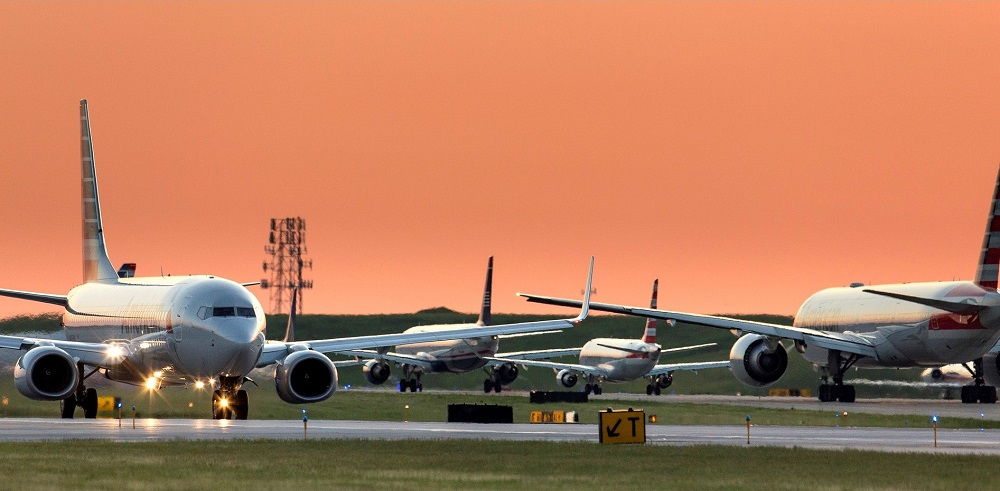Lowest air traffic growth in a decade 'tip of the iceberg'
04 March, 2020
4 min read


The lowest monthly global airline traffic growth since Europe's volcanic ash crisis in 2010 has prompted a warning it is "just the tip of the iceberg".
New figures from the International Air Transport Association show demand rose a modest 2.4 percent in January compared to the same month a year ago as the COVID-19 virus started to affect traffic late in the month.
This was down from 4.6 percent year-on-year growth in December and was the lowest monthly increase since April 2010, when the volcanic ash crisis caused massive airspace closures and flight cancellations.
READ: Etihad scolds hero A380 pilots for spectauclar landing
“January was just the tip of the iceberg in terms of the traffic impacts we are seeing owing to the COVID-19 outbreak, given that major travel restrictions in China did not begin until 23 January,'' IATA director general Alexandre de Juniac said.
"Nevertheless, it was still enough to cause our slowest traffic growth in nearly a decade.”
International passenger demand rose 2.5 percent in January with all regions recording growth apart from Latin America.
In the calm before the storm, Asia-Pacific airlines recorded a 2.5 percent increase in international traffic while Europe saw a slower 1.6 percent growth and North America was up 2.9 percent.
Domestic demand climbed 2.3 percent as strong growth in the US helped offset a 6.8 percent fall in China due to the first impacts from the coronavirus.
The crisis is also affecting the cargo industry.
Global air freight demand fell 3.3 percent in the month, the 10th consecutive month of falls, putting paid to optimism the easing of tensions between the US and China would give the sector a boost.
IATA is predicting tough times ahead due to the disruption for supply chains by COVID-19 but de Juniac said the cargo sector had "proven its resilience time and time again".
"The COVID-19 outbreak is a global crisis that is testing the resilience not only of the airline industry but of the global economy,'' de Juniac warned.
"Airlines are experiencing double-digit declines in demand and on many routes, traffic has collapsed.
"Aircraft are being parked and employees are being asked to take unpaid leave.
"In this emergency, governments need to consider the maintenance of air transport links in their response."
De Juniac reiterated a call earlier this week for a suspension of rules governing landing and take-off slots at some 200 airports that handle about 43 percent of passengers.
The rules mean airlines must use 80 percent of the allocated slots or lose them in the next equivalent season but regulators can relax these requirements in extraordinary circumstances.
He also called for relief on airport fees at airports where demand has disappeared.
These were "two important steps that can help ensure that airlines are positioned to provide support during the crisis and eventually in the recovery,” de Juniac said.
The grim figures emerged as airline chiefs held a meeting with US President Donald Trump.
"We had a very positive, constructive dialogue this morning that centered around the safety, health and wellbeing of travelers and the American public,'' Airlines For America chief executive Nicholas E. Calio.
"We appreciate President Trump reminding the traveling public that, “where [U.S. carriers] are flying, it’s safe to fly.”
An analysis by airline data experts OAG shows one impact of the crisis is that US carriers are redeploying international widebody aircraft on domestic routes.
It said American was "working hard" to redeploy capacity on routes out of its Dallas-Fort Worth and Los Angeles hubs.
"An alternate deployment strategy from Delta Air Lines sees them placing a large amount of additional frequency into traditional “snowbird” winter markets such as Las Vegas, San Diego and Phoenix,'' OAG's John Grant said.
The impact of the virus on services to Japan continued with Delta reducing its weekly flying schedule through to April 30 and suspending summer seasonal services between Seattle and Osaka for 2020 as a result of reduced demand due to COVID-19.
Reduced frequencies will affect flights between Tokyo and Portland, Atlanta, Minneapolis, Detroit and Honolulu.
Other affected services include Nagoya-Detroit, Osaka-Honolulu, Nogaoya-Honolulu and Tokyo-Manila.
Japanese carriers have also been cutting flights.
Get the latest news and updates straight to your inbox
No spam, no hassle, no fuss, just airline news direct to you.
By joining our newsletter, you agree to our Privacy Policy
Find us on social media
Comments
No comments yet, be the first to write one.

